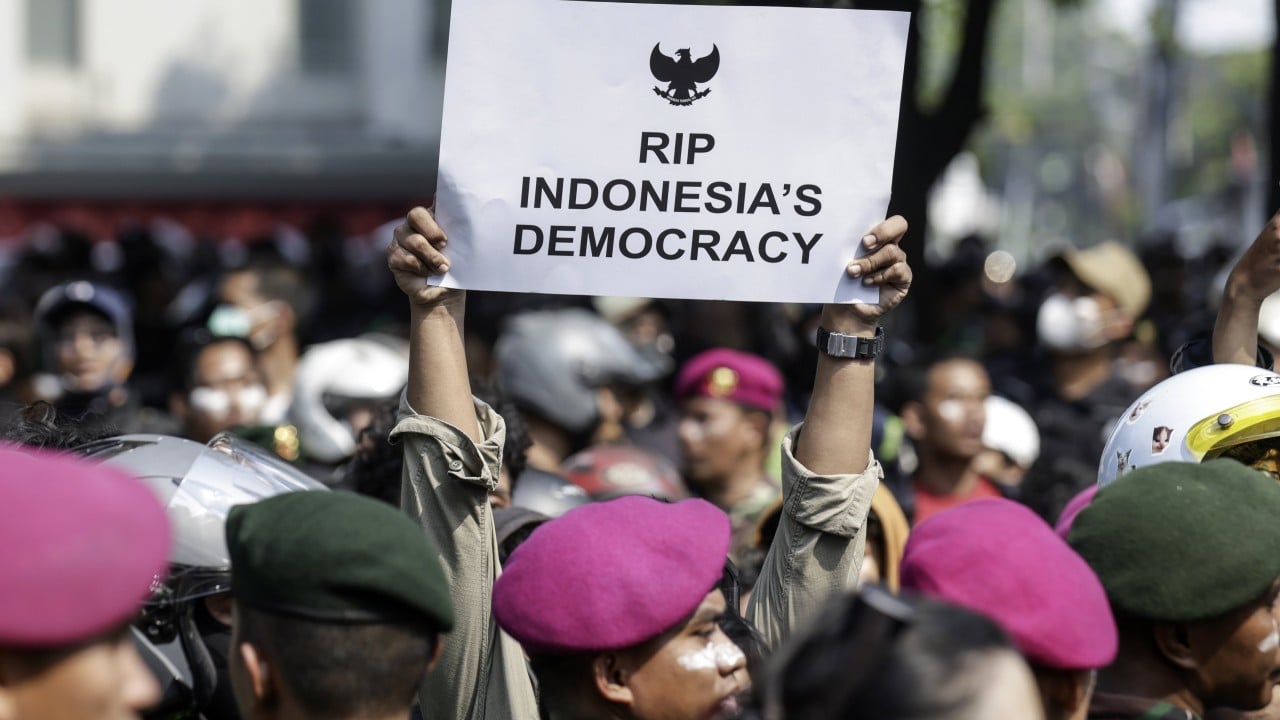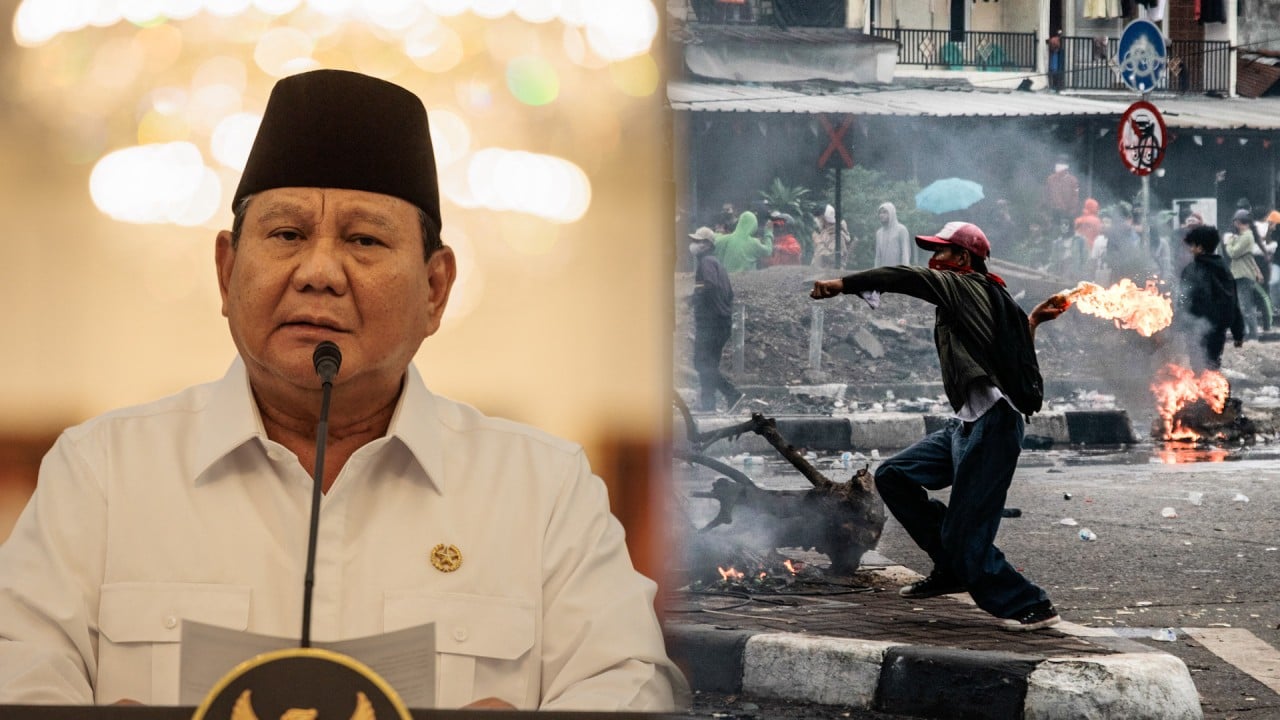The protests that have sprang up across Indonesia are a warning about the state of the country and a wake-up call for better governance. Social media posts are filled with photos of lawmakers who left the country in a rush to find safety.
Advertisement
Picture an administration running a huge fiscal deficit. Interest payments on loans take up an increasingly large part of the national budget, state spending is soaring amid efforts such as a national school lunch programme costing more than 300 trillion rupiah (US$18.2 billion), shortfalls are plugged by a variety of new taxes such as a carbon tax, state-owned enterprises are reportedly engaging in land grabs and lawmakers are pushing unpopular policies such as freezing and repossessing dormant bank accounts.
With deep cuts in funding from the central government, local administrations are trying to fill the gap with increases in land and property taxes as high as 1,000 per cent, sparking outrage. Then there is the uproar over House of Representatives lawmakers receiving 50 million rupiah per month as a housing allowance. Meanwhile, Finance Minister Sri Mulyani has suggested already-underpaid teachers and lecturers be paid from sources other than state funds.
A turning point was the death of a young delivery driver in Jakarta. He was run over by armoured vehicles while making a delivery, sparking national unrest against political elites seen as enjoying a lavish lifestyle while the people suffer.
Indonesian President Prabowo has acted swiftly by revoking several unpopular policies and removing several House members from their seats. Despite this quick fix, there are two major issues Prabowo’s administration must address going forward.
The first involves balancing the national budget in a way that delivers justice to the people. That could include closing loopholes during public procurement that are exploited by corrupt actors and preventing ministers and public officials from securing contracts for family members.
Advertisement


